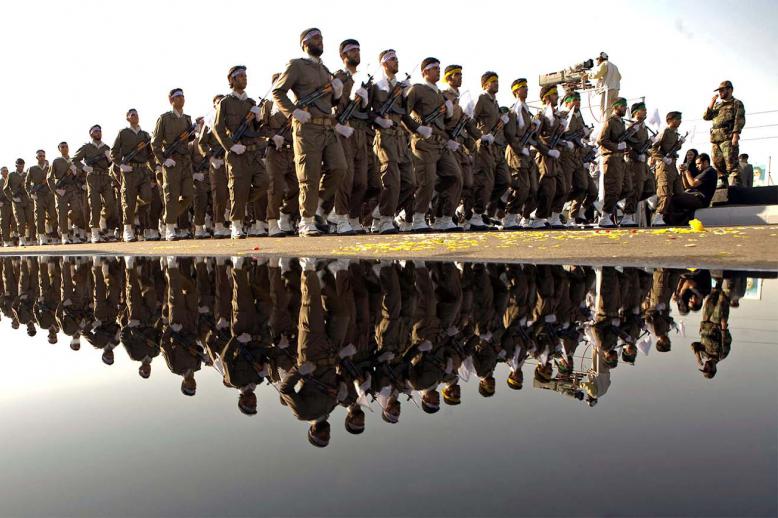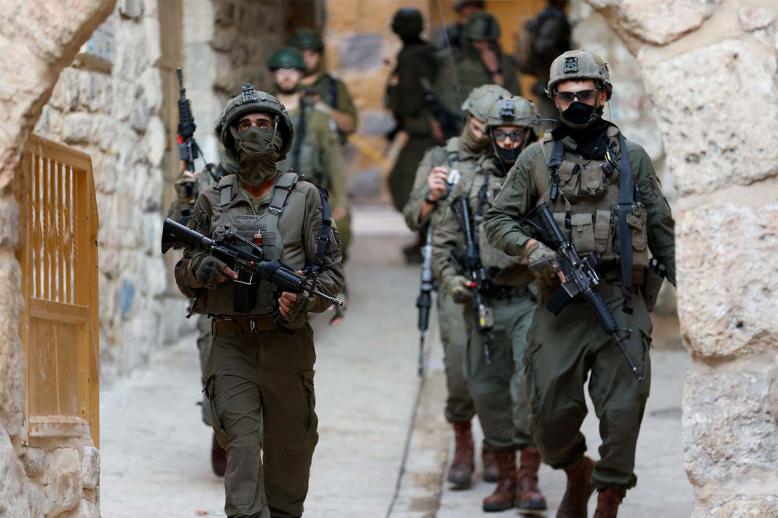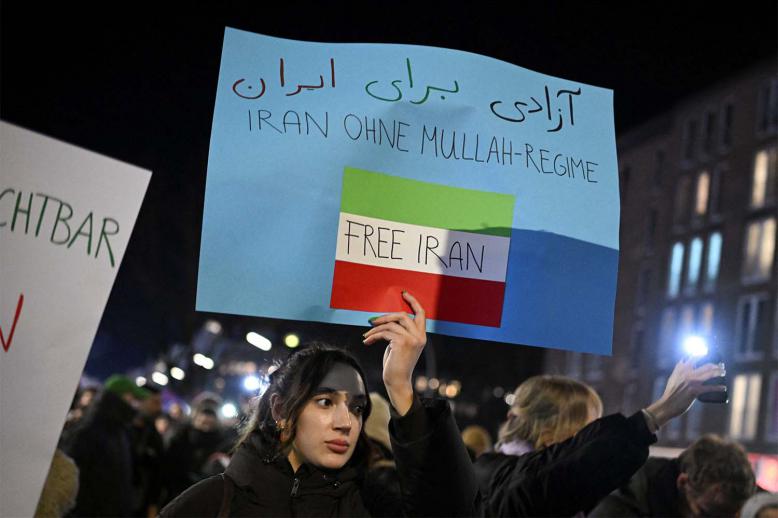Israel, Iran edge closer to wider confrontation in Syria
LONDON - Israel and Iran are threatening to escalate military action against each other, risking widening the confrontation between Tel Aviv and Tehran in Syria, which is already host to multiple conflicts.
Israel said it carried out air strikes January 21 against Iranian targets in Syria in response to a missile fired by Iran’s al-Quds Force a day earlier from Syria towards the Israeli-occupied Golan Heights.
“We are acting against Iran and against the Syrian forces who are tools of Iranian aggression,” said Israeli Prime Minister Binyamin Netanyahu.
The Israeli raid killed 21 fighters in Damascus: 12 Iranians, three Iran-backed militiamen and six Syrians loyal to President Bashar Assad, the Syrian Observatory for Human Rights said.
Netanyahu signalled Israel’s military action against Iranian targets in Syria would continue. “The [Israeli military] is the only military that is fighting the Iranian Army in Syria. I am certain in our ability to defeat the enemy.”
Israeli officials have been increasingly open about carrying out air strikes in Syria, in a marked change to Israel’s policy of ambiguity regarding military action outside its borders. Israel’s outgoing military chief, Lieutenant-General Gadi Eisenkot, said Israel had struck “thousands” of Iranian targets in Syria “without claiming responsibility.”
Israeli military analyst Yoel Guzansky said Israel wants Iran to know that US plans to withdraw its 2,000 troops from Syria would not weaken Tel Aviv’s resolve to counter Tehran there.
“The Iranians are persistent. We have to be persistent, too,” Guzansky, a senior fellow at the Institute for National Security Studies, a Tel Aviv think-tank, told the Associated Press.
By going public about the strikes, Israel has pushed Iran to escalate its rhetoric about a possible response.
“We assure the Iranian people that we are ready to retaliate against any threat,” said Iranian Air Force commander Brigadier-General Aziz Nasirzadeh. “Our current and future generations are eagerly and full-heartedly ready for battling with the Zionist regime and eradicating them from the face of the Earth.”
Former US senior official Martin Indyk said the showdown could spill out outside of Syria. “It’s in Israel’s interest to keep the conflict in Syria, where Israel has an overwhelming advantage,” he told the New York Times. “Iran may look elsewhere, where [it has] more leverage and that includes terrorist activity.”
The Israeli air strikes drew criticism from Russia, which — like Iran — is supportive of the Assad government but also fosters good ties with Tel Aviv.
“The practice of arbitrary strikes on the territory of a sovereign state, in this case, we are talking about Syria, should be ruled out,” Russian Foreign Ministry spokeswoman Maria Zakharova told the Russian news agency TASS. “We should never allow Syria, which has suffered years of armed conflict, to be turned into an arena where geopolitical scores are settled.”
Israeli officials assured Russia that Israel would not target Syrian troops but asked Moscow to make sure that Iranian forces or Tehran’s proxy militias don’t get too close to the Israeli border.
The Russians have maintained good relations with most of the adversaries in the Syrian war, using their strong presence in the country to prop up the Assad regime. Moscow expressed “understanding” towards the security concerns of Israel and Turkey when those concerns do not threaten Damascus itself.
Russia has supported Hezbollah against Syrian rebels yet looked the other way when Israel bombed the Lebanese militia. Russia has also supported the Kurdish People’s Protection Units militia, which is backed by the United States in the fight against the Islamic State, but Moscow turned a blind eye when Turkey bombed the militiamen in Syria.
Israel has continued hitting Iranian targets in Syria with impunity but analysts warned the escalation might get out of control.
“Despite Israel’s apparent control of the situation, a sense of failure could well make Qassem Soleimani, commander of al-Quds Force in Syria, respond irrationally,” wrote Alex Fishman in Ynetnews.com.
Iran’s retaliation is likely to be carried out by — and at the expense of — its proxies in the region.
“[Iran] could conduct an effective campaign against Israel from the Lebanese front through Hezbollah, or from Iran or western Iraq. Yet all of these options, in particular the Lebanon option, would be a declaration of war on Israel that a country like Lebanon simply cannot afford,” wrote Fishman.
To counter Iranian influence in the region, the US Treasury announced sanctions against two of Iran’s proxy militias in Syria: the Fatemiyoun Division and the Zaynabiyoun Brigade. The move, however, is unlikely to deter the Afghan and Pakistani militiamen from fighting Iran’s battles in Syria.
Not only does the Syrian war appear far from over but what was a side conflict in the chaos, the Israeli-Iranian enmity, is increasingly becoming a dominating feature of hostilities there.
Mamoon Alabbasi is Deputy Managing Editor and Online Editor of The Arab Weekly. You can follow him on Twitter @MamoonAlabbasi
This article was originally published in The Arab Weekly.







